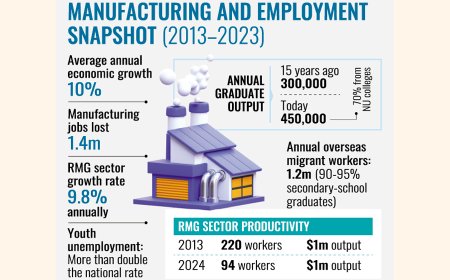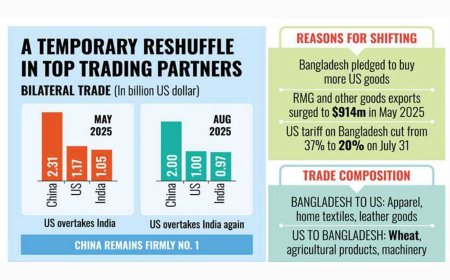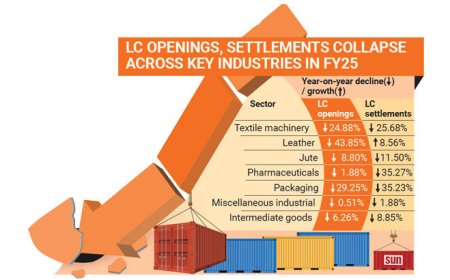Wage growth has lagged behind inflation for 34 consecutive months
Due to rising inflation eroding their real incomes over the past three years, many low-income and unskilled workers in Bangladesh's agriculture, industrial, and service sectors are being forced to cut back on consumption.

According to the Bangladesh Bureau of Statistics (BBS), inflation has exceeded wage growth for 34 consecutive months up to November, despite a gradual increase in wages since January 2021. In November, the wage growth rate was 8.10%, which was 3.28 percentage points below the inflation rate of 11.38%, as reported by the BBS’s Wage Rate Index (WRI).
This disparity is the second-largest in at least a decade, with the largest gap of 3.73 percentage points occurring in July of this year. Analysts say this growing gap is forcing low-income and unskilled workers to reduce their consumption as their real incomes decline.
Mustafa K. Mujeri, executive director of the Institute for Inclusive Finance and Development, noted that this persistent gap has been severely impacting low and limited-income groups for years. He explained that long-term high inflation erodes purchasing power and alters food consumption patterns, particularly among the poor. Food inflation, especially, has affected the ability of low-income individuals to purchase essential foods, leading to a reduction in their intake of nutritious items.
Mujeri expressed concern about the nutritional status of children and women, stating that children, in particular, are vulnerable to lasting harm if they experience malnutrition. “Once an infant falls into malnutrition, it can never be fully recovered, leading to permanent damage to their health,” he warned.
In November, food inflation in urban areas reached 14.63%, particularly impacting the urban poor. Food inflation has remained above 9% since May 2023, consistently surpassing 9.5% in each month of FY24, except for February and June.
Wage growth in the agriculture sector was 8.36% in November, a slight increase from August, while the industrial sector saw a 0.04 percentage point increase to 7.73%. The service sector's wage growth also rose by 0.03 percentage points to 8.40%. The WRI tracks the wages of informal, daily-paid workers in 63 occupations across agriculture, industry, and services.
Mujeri criticized the previous government’s failure to control inflation through effective monetary policies. He stated that a contractionary monetary policy alone is insufficient, and that a multi-faceted approach is needed. He stressed the importance of ensuring sufficient production to stabilize the market, noting that the government has not succeeded in stabilizing the kitchen market. With Ramadan approaching, Mujeri expressed little hope for inflation to ease, especially with the recent indefinite strike by water transport workers, which could push prices even higher.
A study by private think-tank Research and Policy Integration for Development (RAPID) found that real income reductions due to ongoing inflation have pushed around 7.8 million people into poverty, including 3.8 million who have become extremely poor. Another 10 million people are at risk of falling below the poverty line. RAPID Chairman MA Razzaque echoed Mujeri’s views, explaining that falling real incomes inevitably lead people to cut back on consumption, such as by opting for cheaper food, skipping meals, or forgoing basic needs.
What's Your Reaction?



















































































